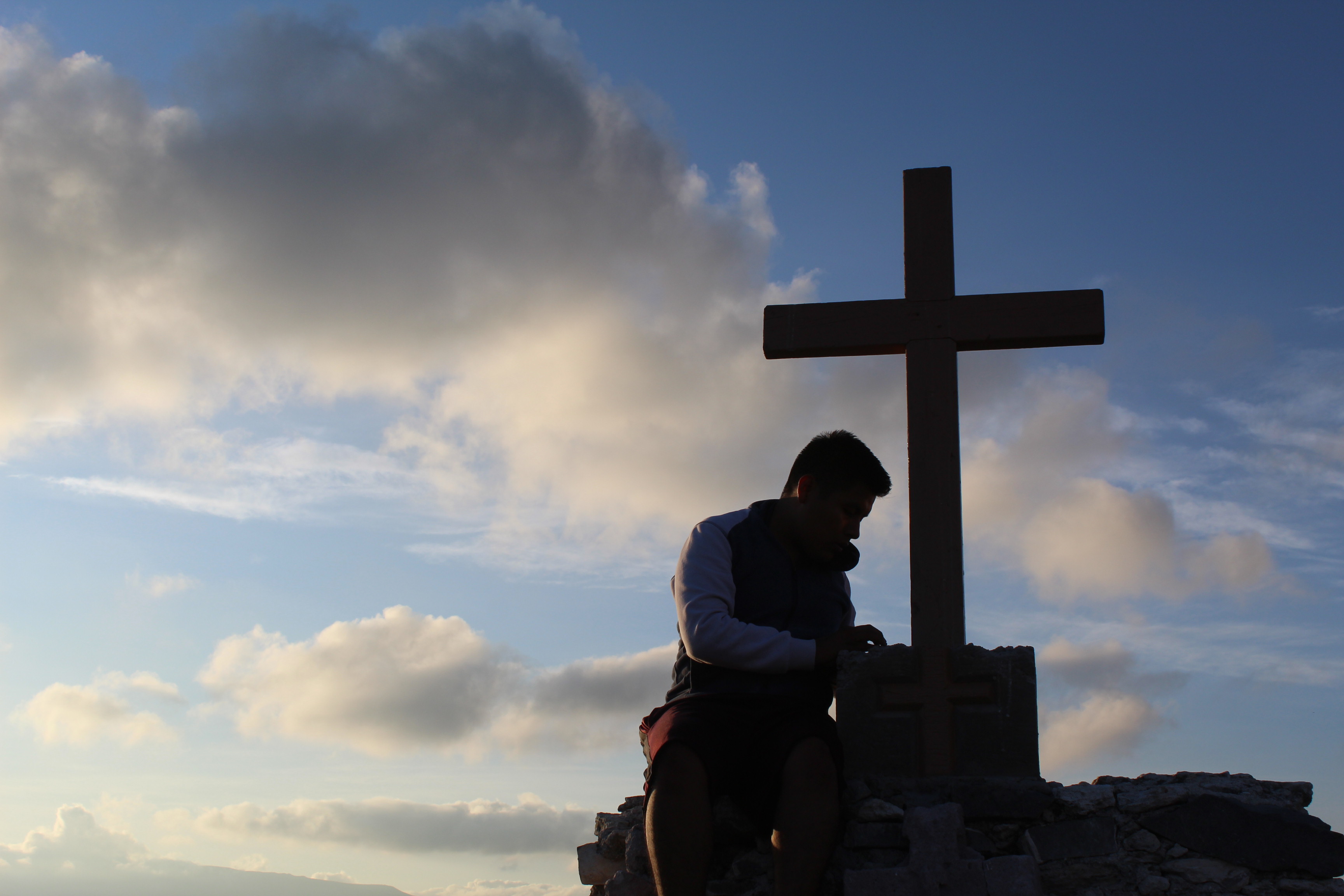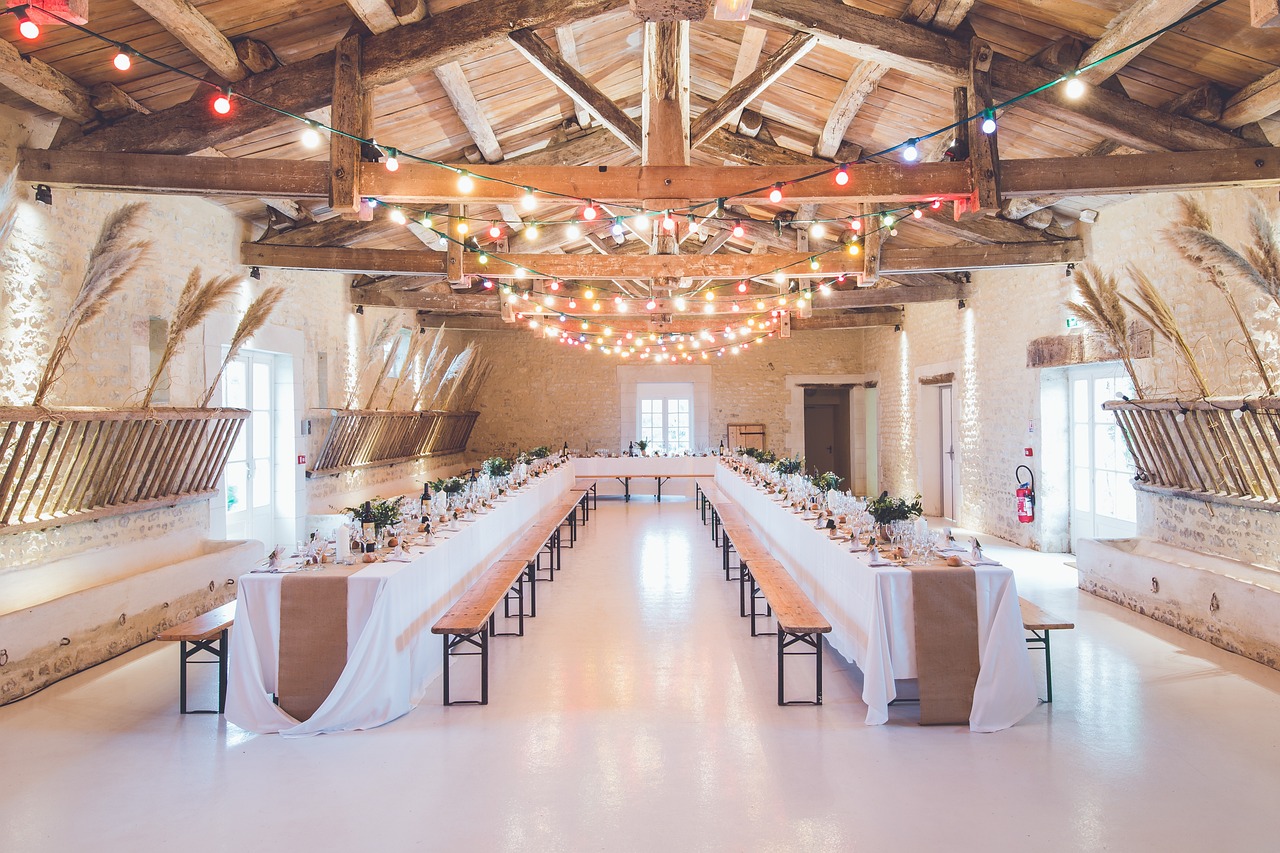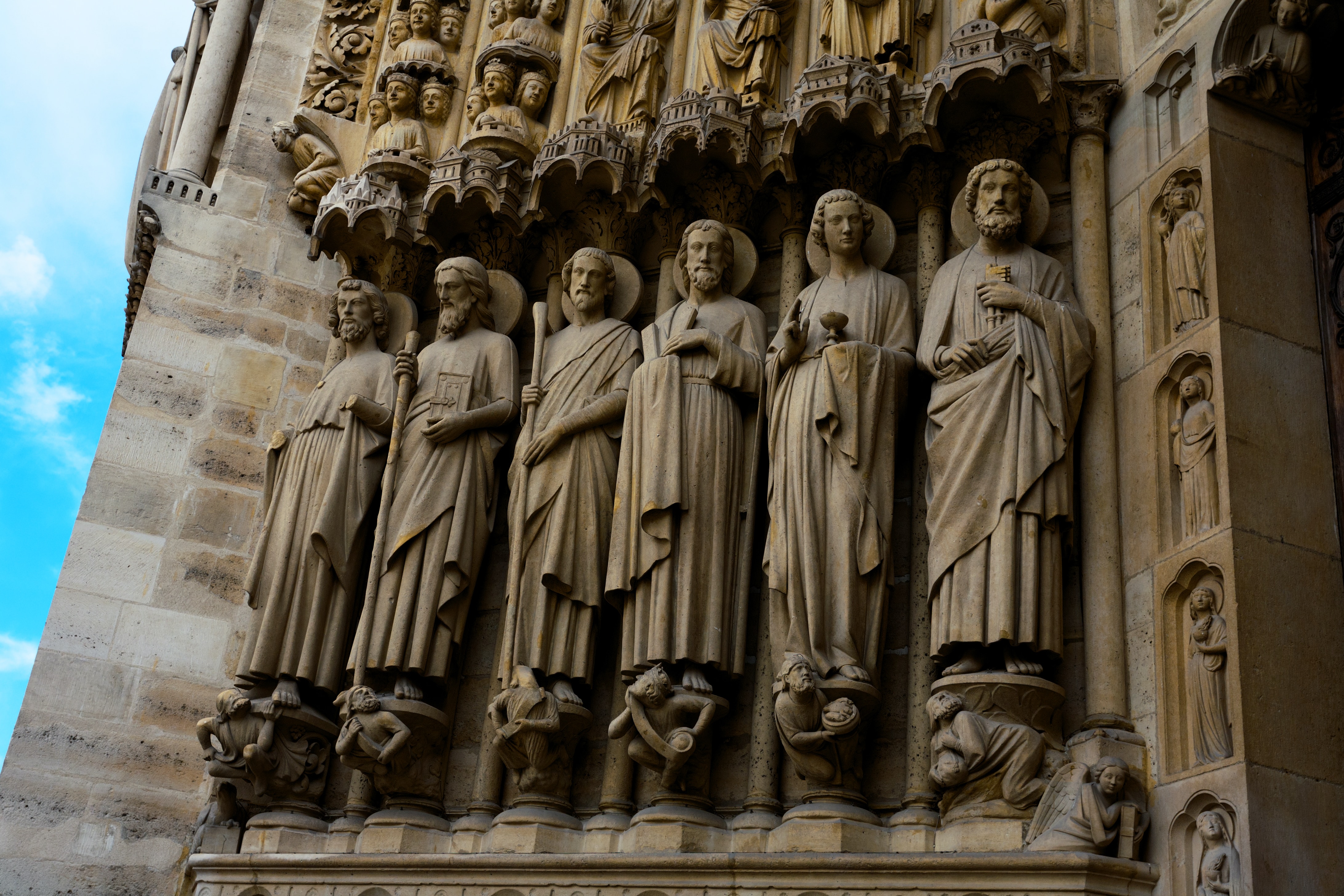***This reflection was reposted from Diocesan Archives.***
“The person who is trustworthy in very small matters is also trustworthy in great ones.” — Jesus Christ
“Did you see what she was wearing?”
“Have you heard about their fight?”
“Has he seen a doctor about that thing on his foot?”
I find it interesting when people talk about others behind their back. It’s one thing if it’s showering compliments upon the absent person, but more often than not, it’s criticism and spreading information that we have no right to be spreading. I am ashamed to have taken part in such conversations from time to time. But, like most sin, it’s exciting to talk about people behind their back.
I’ve realized I immediately lose trust in people when they gossip. There’s something inside me that knows that it might be someone else they’re talking about this time but next time it could be me. What story or criticism do people crack open and start passing around when I’m at a dentist appointment?
Few people would boast about how others don’t trust them. We demand honesty from other people all the time, but it’s embarrassingly rare when we take a moment to look at ourselves and single out the smallest bits of dishonesty. We’ve been breaking trust since Adam and Eve and none of us are exempt from such a flaw.
It always starts with simple things, like not showing up to a friend’s house for dinner because you would rather watch Netflix or wasting company time scrolling through Facebook. It can be silly things like watching pirated versions of The Avengers, sneaking into a Dave Matthews Band concert (I have no idea who would want to do that) or buying a dress for a wedding only to return it after the wedding. (Cool trick, eh?)
Once we contemplate our trustworthiness it can be startling to realize we don’t even trust ourselves. Honesty is doing what we ought to do. Honesty protects us from being hypocrites. Honesty means we admit when we are wrong. We’re all broken and we’re constantly violating the rules we pretend to uphold.
Pagans and non-believers watch what we do. They listen to what we say. If we aren’t trustworthy and we cheat, steal, or gossip just like everyone else, we’ve missed our chance to evangelize and we make a mockery of our religion.
Doing the “very small matters” right makes a difference in the great matters. There are no sins that fly under God’s radar. It’s time to do some fall cleaning of our daily lives and root out those venial sins!
“El que es fiel en las cosas pequeñas, también es fiel en las grandes”. – Jesucristo
“¿Viste su ropa?”
“¿Has oído hablar de su pelea?”
“¿Ha visto a un médico por esa cosa en su pie?”
Me parece interesante cuando la gente habla de otras personas a sus espaldas. Una cosa es colmar de elogios a la persona ausente, pero la mayoría de las veces es una información crítica y difundida que no tenemos derecho a difundir. Me avergüenzo de haber participado en tales conversaciones de vez en cuando. Pero, como la mayoría de los pecados, es emocionante hablar de las personas a sus espaldas.
Me he dado cuenta de que inmediatamente pierdo la confianza en las personas cuando chismean. Hay algo en mí que sabe en este momento podría ser otra persona de la que están hablando, pero la próxima vez podría ser yo. ¿Qué historia o crítica inicia la gente y empieza a divulgar cuando estoy en una cita de dentista?
Pocas personas van a presumir de cuánta gente no confía en ellos. Exigimos honestidad de otras personas todo el tiempo, pero es vergonzosamente raro cuando nos tomamos un momento para mirarnos a nosotros mismos y eliminar los más pequeños fragmentos de deshonestidad. Venimos quebrantando la confianza desde Adán y Eva y ninguno de nosotros está exento de tal defecto.
Siempre comienza con cosas simples, como no ir a cenar a la casa de un amigo porque prefieres ver Netflix. Creo que la mayoría de nosotros hemos perdido tiempo en el trabajo viendo el Facebook. Pueden ser cosas tontas como ver versiones piratas de The Avengers, colarse en un concierto de Dave Matthews Band sin boleto o comprar un vestido para ir a una boda y devolverlo después del evento. (Buen truco, ¿eh?)
Una vez que contemplamos si somos fiables, puede ser sorprendente darnos cuenta de que ni siquiera confiamos en nosotros mismos. La honestidad es hacer lo que debemos hacer. Con la honestidad evitamos ser hipócritas. La honestidad significa que debemos admitir cuando estamos equivocados. Todos somos quebrantados y violamos constantemente las reglas que pretendemos respetar.
Paganos y no creyentes observan lo que hacemos. Ellos escuchan lo que decimos. Si no somos dignos de confianza y engañamos, robamos o chismeamos igual que todos los demás, hemos perdido la oportunidad de evangelizar. Nos hemos burlado de nuestra religión.
Hacer bien las “cosas pequeñas” marca la diferencia en los grandes asuntos. No hay pecado ninguno que Dios no ve. ¡Es hora de hacer una limpieza de otoño de nuestra vida diaria y desarraigar los pecados veniales!
Reflection reposted from Diocesan Archives. Author: Patrick Hanus
Feature Image Credit: Ben White, unsplash.com/photos/4Bs9kSDJsdc


 Kathryn Mulderink, MA, is married to Robert, Station Manager for Holy Family Radio. Together they have seven children (including Father Rob), and seven grandchildren. She is President of the local community of Secular Discalced Carmelites and has published five books and many articles. Over the last 30 years, she has worked as a teacher, headmistress, catechist, Pastoral Associate, and DRE, and as a writer and voice talent for Catholic Radio. Currently, she serves the Church by writing and speaking, and by collaborating with various parishes and to lead others to encounter Christ and engage their faith. Her website is
Kathryn Mulderink, MA, is married to Robert, Station Manager for Holy Family Radio. Together they have seven children (including Father Rob), and seven grandchildren. She is President of the local community of Secular Discalced Carmelites and has published five books and many articles. Over the last 30 years, she has worked as a teacher, headmistress, catechist, Pastoral Associate, and DRE, and as a writer and voice talent for Catholic Radio. Currently, she serves the Church by writing and speaking, and by collaborating with various parishes and to lead others to encounter Christ and engage their faith. Her website is 
 Kate Taliaferro is an Air Force wife and mother. She is blessed to be able to homeschool, bake bread and fold endless piles of laundry. When not planning a school day, writing a blog post or cooking pasta, Kate can be found curled up with a book or working with some kind of fiber craft. Kate blogs at
Kate Taliaferro is an Air Force wife and mother. She is blessed to be able to homeschool, bake bread and fold endless piles of laundry. When not planning a school day, writing a blog post or cooking pasta, Kate can be found curled up with a book or working with some kind of fiber craft. Kate blogs at 
 Dakota lives in Denver, CO with her husband, Ralph, and their two sons, Alfie & Theophilus. She is the Dean of Enrollment Management for Bishop Machebeuf High School where her husband also teaches. You can find Dakota at the zoo or a brewery with her family or with her nose in a book at home. For more of Dakota’s writing check out
Dakota lives in Denver, CO with her husband, Ralph, and their two sons, Alfie & Theophilus. She is the Dean of Enrollment Management for Bishop Machebeuf High School where her husband also teaches. You can find Dakota at the zoo or a brewery with her family or with her nose in a book at home. For more of Dakota’s writing check out 
 Allison Gingras (
Allison Gingras ( 


 Dr. Alexis Dallara-Marsh is a board-certified neurologist who practices in Bergen County, NJ. She is a wife to her best friend, Akeem, and a mother of two little ones on Earth and two others in heaven above.
Dr. Alexis Dallara-Marsh is a board-certified neurologist who practices in Bergen County, NJ. She is a wife to her best friend, Akeem, and a mother of two little ones on Earth and two others in heaven above.


 Sheryl is happy to be the number 1 cheerleader and supporter for her husband, Tom who is a candidate for the Permanent Diaconate in the Diocese of Kalamazoo. They are so grateful for the opportunity to grow together in this process. Sheryl’s day job is serving her community as the principal for St. Therese Catholic School in Wayland, Michigan. Since every time she thinks she gets life all figured out, she realizes just how far she has to go, St. Rita of Cascia is her go-to Saint for intercession and help. Home includes Carlyn, a very, very goofy Golden Retriever and Lucy, our not-so-little rescue puppy.
Sheryl is happy to be the number 1 cheerleader and supporter for her husband, Tom who is a candidate for the Permanent Diaconate in the Diocese of Kalamazoo. They are so grateful for the opportunity to grow together in this process. Sheryl’s day job is serving her community as the principal for St. Therese Catholic School in Wayland, Michigan. Since every time she thinks she gets life all figured out, she realizes just how far she has to go, St. Rita of Cascia is her go-to Saint for intercession and help. Home includes Carlyn, a very, very goofy Golden Retriever and Lucy, our not-so-little rescue puppy. 
 Merridith Frediani loves words and is delighted by good sentences. She also loves Lake Michigan, dahlias, the first sip of hot coffee in the morning, millennials, and playing Sheepshead with her husband and three kids. She writes for Catholic Mom, Diocesan.com, and her local Catholic Herald. Her first book Draw Close to Jesus: A Woman’s Guide to Adoration is available at Our Sunday Visitor and Amazon. You can learn more at
Merridith Frediani loves words and is delighted by good sentences. She also loves Lake Michigan, dahlias, the first sip of hot coffee in the morning, millennials, and playing Sheepshead with her husband and three kids. She writes for Catholic Mom, Diocesan.com, and her local Catholic Herald. Her first book Draw Close to Jesus: A Woman’s Guide to Adoration is available at Our Sunday Visitor and Amazon. You can learn more at 

